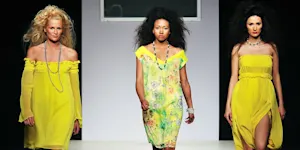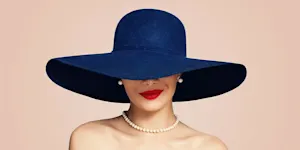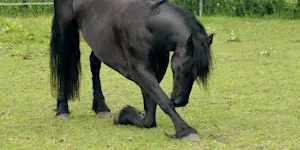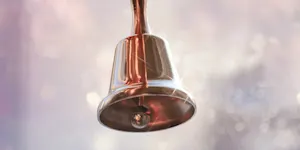What Makes This Word Tick
Ah, "vignette"—a word that rolls off the tongue like a gentle breeze. Derived from the French word for "little vine," it brings the charm of small, delicate details strung together. Whether it's a brief descriptive passage in literature or a decorative design on a book page, vignettes capture a snapshot moment or feature with an artistic flourish that leaves a lasting impression.
If Vignette Were a Person…
Vignette would be that elegant individual at a social gathering who charms everyone with short, captivating stories. Always dressed with a touch of whimsy, they'd mingle freely, leaving each listener with a vivid mental picture. You'd find vignette at a museum opening or a cozy bookstore event, where each word is a brushstroke painting a larger narrative.
How This Word Has Changed Over Time
Originally tied back to ornamental decoration in manuscripts and books, "vignette" evolved into the literary realm. By the 19th century, it was used to describe brief literary sketches. Over time, its usage expanded even further to include short scenes in movies and personal anecdotes, all maintaining the essence of capturing life or imagery in compact, elegant snippets.
Old Sayings and Proverbs That Use Vignette
While not present in traditional proverbs, the spirit of vignette can be found in sayings like "a picture is worth a thousand words." Just as this saying suggests, vignettes often use minimal text to evoke a grander image or feeling.
Surprising Facts About Vignette
Did you know that in the world of photography, a vignette refers to a gradual decrease in brightness towards the edges of an image? This technique draws focus to the center, guiding viewers to the main subject effortlessly, much like a well-crafted literary vignette highlights the heart of a story.
Out and About With This Word
Next time you visit a museum or watch a film, listen for discussions on vignettes. In artistic and cinematic contexts, they refer to scenes that might seem slight but express profound narrative or aesthetic details, often setting the mood or enhancing the main storyline.
Pop Culture Moments Where Vignette Was Used
Think of the opening of the movie "Amélie," where vignettes of daily life in Paris set the whimsical tone. Or those brief yet vivid snapshots in TV series that reveal a character's backstory, painting a complete picture with minimal word count.
The Word in Literature
Vignettes often feature in literary works known for their rich, descriptive prose. Authors like Virginia Woolf and Ernest Hemingway have mastered writing associated vignettes, contributing to literature that uses fewer pages but creates intense visual experiences.
Moments in History with Vignette
Imagine the salons of Enlightenment-era France, where intellectuals would share brief, poignant monologues—each a vignette of the human experience. These salons were breeding grounds for the types of succinct yet powerful expressions that vignettes thrive on.
This Word Around the World
In Italy, a "vignetta" may refer to a small cartoon or satirical drawing in a newspaper or magazine. Each culture has its own twist on the notion of a brief yet descriptive scene or illustration, reflecting universal appreciation for concise creativity.
Where Does It Come From?
"Vignette" traces back to the Latin "vinea," meaning vine, influenced by decorative floral designs often seen on book pages during the Renaissance. This decorative aspect gradually lent its meaning to literary forms, evolving over time into the varied uses we appreciate today.
How People Misuse This Word
Some might mistakenly use "vignette" to describe an entire story or film, when it more accurately refers to a brief, descriptive scene or moment within a larger work. It's all about conveying a larger idea with finely honed detail, not a comprehensive narrative.
Words It’s Often Confused With
Anecdote: While both are brief, an anecdote usually centers around a humorous or intriguing story, whereas a vignette paints a descriptive scene.
Sketch: In literature, a sketch often shares the brevity of a vignette but may lack the depth of description and emotion.
Clip: In film and media, a clip refers to any short segment, not specifically a vignette, which conveys mood and character.
Additional Synonyms and Antonyms
Synonyms for vignette include scene, sketch, and portrait. Antonyms would be epic, narrative, and saga, as these suggest a longer, more comprehensive storytelling approach.
Want to Try It Out in a Sentence?
Consider this: "The author began the chapter with a poignant vignette, capturing the melancholy of a rainy Paris afternoon in just a few sentences."
















